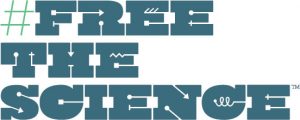 The Electrochemical Society (ECS) will celebrate its third annual Free the Science Week (April 1-7, 2019) by once again taking down the paywall to its entire online collection of published research. For the duration of the week, the ECS Digital Library, which contains over 151,000 scientific articles and abstracts, will be freely accessible to everyone.
The Electrochemical Society (ECS) will celebrate its third annual Free the Science Week (April 1-7, 2019) by once again taking down the paywall to its entire online collection of published research. For the duration of the week, the ECS Digital Library, which contains over 151,000 scientific articles and abstracts, will be freely accessible to everyone.
What is Free the Science?
Launched in 2015, the Free the Science initiative is ECS’s vision for transformative, industry-wide change in the traditional methods of communicating scholarly research. Based on the fundamental tenet that research should be free for readers to access and free for authors to publish, the initiative represents the Society’s ongoing, community-driven push toward a future that embraces open science.
Gauging impact
ECS currently supports open access publishing in its two peer-reviewed journals, the Journal of The Electrochemical Society and the ECS Journal of Solid State Science and Technology, with a discount program for its open access article processing charges. (ECS’s standard open access article processing charge is $1,000.)
Through the program, ECS provides article credits (which cover these charges) to various members of its community—Society members, authors of certain types of articles, and authors affiliated with institutions subscribed to the Society’s read-and-publish subscription package, ECS Plus, which by now boasts a subscription base of over 1,000 institutions.
ECS’s support of open access as a publishing option has had a pivotal impact upon Society publishing.
Since ECS began offering open access as a publishing option in 2014, over 35% of its journal articles have been published open access. Over 90% of those articles were published at no cost to authors, thanks to the over $2.1 million in article processing charge credits the Society provided.
Industry recognition
In recent months, amid discussions of Plan S, ECS’s Free the Science initiative has drawn attention from the key players in the publishing industry.
In an October 2018 interview with the Open Access Scholarly Publishers Association (OASPA), Stuart Taylor, publishing director at the Royal Society and OASPA board member, was asked if there were any organizations he thought were doing particularly innovative work to progress open access.
“Yes,” Taylor replied. “The Electrochemical Society are looking to move to a platinum open access model so they don’t have to charge APCs; have a look at their Free the Science project. I think that’s a bold and exciting initiative.”
More recently, following a University College London Town Hall meeting on Plan S, Robert Kiley, head of open research at the Wellcome Trust and the meeting’s cOAlition S representative, mentioned ECS’s Free the Science initiative in his written response.
Kiley responded, “It is interesting to see a number of new initiatives being trialled, such as The Electrochemical Society’s Free the Science initiative, the ‘Subscribe to Open’ model being implemented by the not-for-profit publisher Annual Reviews and various other consortia models.”
Rallying the community
Christopher Jannuzzi, ECS executive director and chief executive officer, believes that Free the Science is different from other open access initiatives.
“Most open access initiatives fall short in that they address readers’ needs, but do nothing to solve the underlying issue of who pays for publishing,” says Jannuzzi. “Charging authors substantial fees to publish open access, as opposed to charging libraries and corporations for access, is not real progress. It’s merely pushing the funding question downstream.”
“What makes ECS unique is its stance that true open access means free to read as well as free to publish,” Jannuzzi says. “Since the launch of the Free the Science initiative, the Society has committed over $2.1 million to making ECS research open access at no cost to authors. That’s what Free the Science is all about.”
“Our hope is that the glimpse into the future that Free the Science Week provides will rally the entire ECS community to support this vital initiative so we can make all of ECS’s outstanding content truly open access to all,” says Jannuzzi.
Please join the Society in celebrating the successes and long-term objectives of Free the Science by downloading and sharing as much ECS research as possible from April 1 to April 7. Spread the word and show your support for making science open on social media: #FreeTheScience


